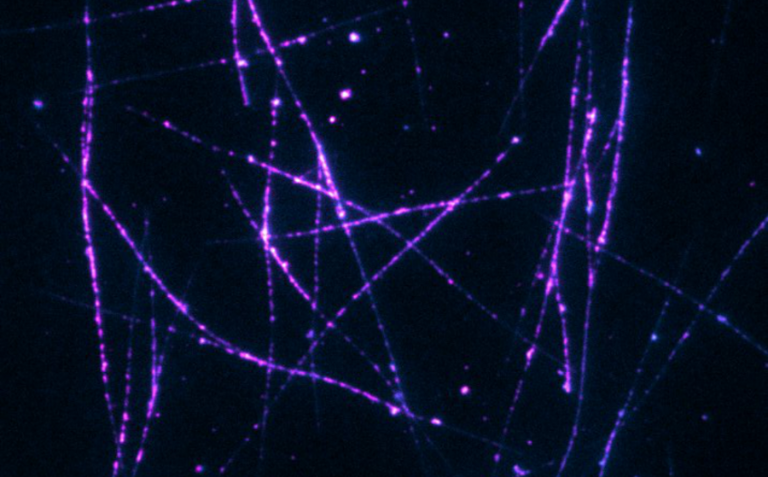
Deciphering the “highway code” of our cells
Share this article
A team from UNIGE has identified a new process governing the growth of the ‘roads’ that enable cells to thrive.
Just as a city needs efficient transportation networks for its exchanges and development, cells require ‘roads’ to ensure their supply, growth, and division. These are called microtubules. They are dynamic structures that continually assemble and disassemble. Regulation problems can be the root cause of diseases such as cancer and certain neurodegenerative disorders.
Recent work by Charlotte Aumeier, assistant professor in the Biochemistry Department at the UNIGE Faculty of Science, provides new insights into the functioning of the microtubule. She has identified a new process involving two proteins that govern the growth of these ‘roads.’ Scientists have demonstrated that the proteins CLIP-170 and EB3 undergo a liquid-liquid phase separation, akin to a drop of oil in water. This mechanism appears to concretely control the dynamics of microtubules. ‘This advancement promises to further expand our understanding and ability to intervene at the very heart of cellular processes,’ rejoices UNIGE. It also envisions new targets in the development of anticancer therapies.”
Source: UNIGE press release